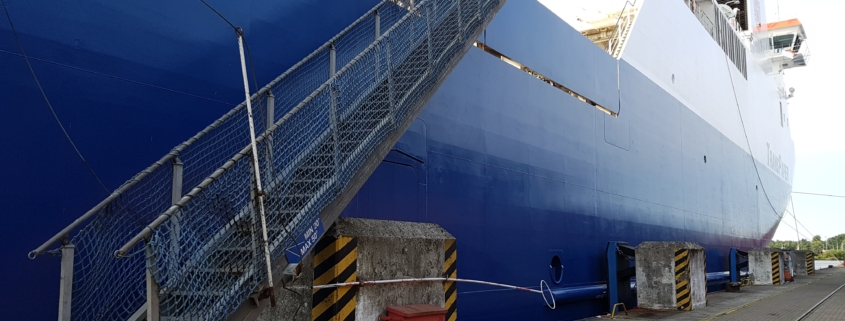THE MARITIME COURT SURVEYOR IN THE NETHERLANDS
Fact-finding should preferably be done as soon as possible after the occurrence of the damage causing incident.
Where evidence is in the possession of only one of the involved parties, such as VDR-data, radar tracks, AIS data, witness evidence, the crew list and copies of logbooks such as the deck- and engine logbooks, Dutch law has several legal instruments to (try to) obtain such evidence.
This article provides an overview of the available legal instruments under Dutch law regarding the discovery prior to proceedings on the merits.
One important instrument is that of art. 843a Dutch Code of Civil Procedure (further: “DCCP”). This forms a legal basis for a party to claim insight into, a copy of and/or an extract of certain data. This can be done by way of a prejudgment attachment on such data for the purpose of preserving evidence. To subsequently actually obtain the evidence this can be claimed in (summary) proceedings or proceedings commenced by an application. The procedure ex art. 843a DCCP can also be initiated without a prior prejudgment attachment.
A party can also file a petition for the appointment of an expert surveyor or hearing of an expert witness ex. article 202 et seq. DCCP. This article mainly focusses on this option. For cargo related matters the articles 8:494 – 8:495 Dutch Civil Code (further: “DCC”) contain specific provisions for carriage of goods by sea and the articles 8:958 – 8:960 DCC for carriage of goods by inland waterways. Those options are not discussed in this article. A preliminary report by or hearing of an expert witness ex. article 202 et seq. DCCP can be applied for instance to other maritime incidents such as collisions.
General remarks request ex art. 202 et seq. DCCP
A preliminary report or hearing of an expert witness may serve to enable a party to obtain certainty on the basis of the expert report to be issued as to the facts and circumstances relevant to the decision of the dispute and thus to better assess whether it is advisable to initiate (or to continue) legal proceedings. In principle, the court must award such a request, provided that the request is relevant and sufficiently specific and concerns facts that can be proven by means of the expert investigation. However, this is different if, on the basis of the facts and circumstances to be stated in the decision of the court, the court is of the opinion that the application is contrary to the principles of due process (of law), if there is (any) abuse of rights or if there is any other overriding interest.
Jurisdiction
A petition for a preliminary report or hearing of an expert witness ex. article 202 et seq. DCCP must be submitted to the Judge in Interlocutory Proceedings. Where a Dutch Court (likely) has jurisdiction in the proceedings on the merits, the judge in interlocutory proceedings also has jurisdiction to deal with the request.
Maritime Court Surveyor
Someone who is appointed by the court as an expert in a maritime matter is called a maritime court surveyor.
The Maritime Chamber of the District Court of Rotterdam instigated in 2017 a working group that has made joint investigations to ensure that the maritime court surveyor will become a more effective tool for fact finding.
Their final report was published in 2019 (https://www.rechtspraak.nl/SiteCollectionDocuments/rapport-project-afkoersen-vaste-maritieme-gerechtsdeskundigen.pdf).
There are various types of maritime court surveyors. A party may either request the Judge in Interlocutory Proceedings to appoint a maritime court surveyor (a) who conducts a full research including gathering evidence (e.g. on board a vessel) and presents a final survey report to the court or (b) one who is merely appointed to gather evidence (e.g. on board the vessel). During substantive proceedings the court may appoint (c) a maritime court surveyor to inform the judge(s) in writing or (d) to appear at a hearing to answer questions from the judges and the lawyers of the parties.
In practice
When a party does not cooperate during a survey of the maritime court surveyor the surveyor does not have power to force a party to hand over evidence. However, he may call in the judge in interlocutory proceedings of the District Court for support, if that has been requested and granted in the petition. The judge may be able to force a party on the basis of the articles 198 jo. 205 DCCP.
Speed is of the essence. After a maritime incident a maritime court surveyor should preferably be appointed as soon as possible. The judge in interlocutory proceedings of the District Court Rotterdam is 24/7 available for such requests. The request may be awarded the same day. It is advisable in urgent matters to request an ‘ex parte’ (without hearing the counterparty) decision. If an ex parte request is made, it must also be stated that it is a matter of urgency, for example because the vessel in the matter at hand is leaving the Dutch jurisdiction any time soon.
For more information, please contact:
DAAN KOMEN
Telephone : +31 10 217 77 20
Mobile : +31 6 37 47 05 56
Email : komen@caland.nl
Whilst every care has been taken to ensure the accuracy of this information at the time of publication, the information is intended as guidance only. It should not be considered as legal advice and no rights can be derived from it.



